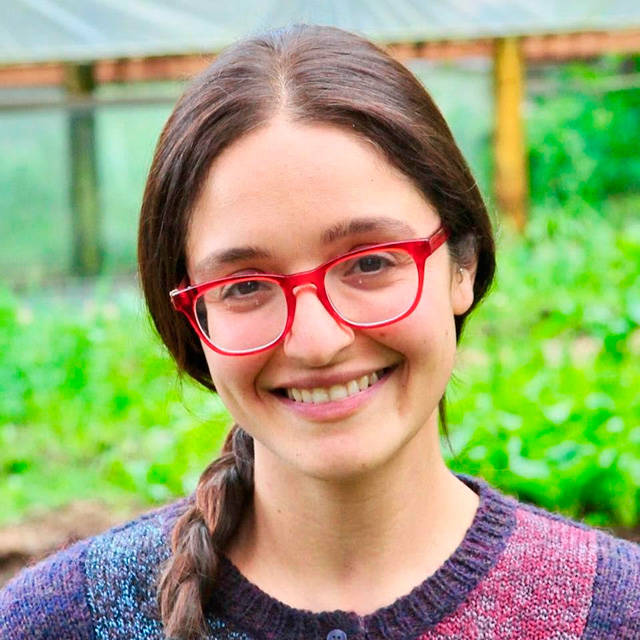Rasham Nassar is challenging incumbent Wayne Roth for the Central Ward seat on the Bainbridge Island City Council.
Name: Rasham Nassar
Campaign website: www.rasham4citycouncil.org
Education: University of California Berkeley, BA, Philosophy; Certification, Appraisal Institute, Seattle
Professional Experience: Co-owner of Bainbridge Organic Farm, Owner of eco-friendly Island business, Certified Researcher in Island-based Real Estate Appraisal Firm, Project Management
Public Service: Solace Farm Community Food Recycling Program; Farm and Sustainability Educator. Other volunteering: Internship program for at-risk youth; Legal Advocate, Community Law Center; Animal Shelter
Q&A with Rasham Nassar
Council District 5, Central Ward
1. Should building height restrictions be loosened in downtown Winslow to provide for greater density and affordable housing units?
Winslow is in part unique because of small property holdings and number of individual owners, fashioned into a human-scale downtown area. While I do favor creating incentives for development of affordable housing, they should be considered carefully to avoid unintended consequences, learning from our current affordable housing law. The current height limit of 65’ gives plenty of room to grow; for future consideration, we should verify that increasing it would actually produce affordable units.
2. Do you support the construction of a parking garage for downtown visitors, shoppers and workers? How should it be financed?
While I support boosting commercial activity in our downtown core, a parking facility would increase traffic and negatively impact Winslow’s unique character. Looking forward, the conversation should focus on improvements to pedestrian and cyclist linkage to Winslow, and on conversations with Kitsap Transit to provide consistent connectivity to commercial zones. Also, considering other capital projects and taxing agencies, we should assess the overall cost implication to taxpayers and level of priority before we present to voters.
3. The scope and cost of the new police station have increased since it last went to a public vote. Should the newest proposal again go before voters for approval?
I believe it should. Our community favored the $7M option to co-locate, and voted down a subsequent proposal priced around $15M. The new proposal is nearly double, and we’ve recently learned the option to purchase the land was never guaranteed. Island taxpayers also have yet to see their 2018 tax bills that will include the new fire department bond, the Sakai park bond, new state school funding taxes, and a possible local school bond.
4. Many islanders have been shocked and saddened by the loss of trees, animal habitat and vegetation in the Highway 305 scenic corridor as construction has started on the first leg of the Sound to Olympics Trail. A growing number of islanders are concerned about future phases. Should the extension of the trail along the highway to Agate Passage go to a public vote?
It is actually possible to narrow the trail to have less of an impact on the greenbelt – options to redesign the trail to be smaller and less destructive should be presented to the public prior to a vote. We need more non-motorized transportation routes, and we should also be seeking to introduce these island-wide. Regardless, our community’s environmental values dictate that, in the event we proceed with the STO, we do so carefully and responsibly.
5. Many council committee meetings are not open to the public. Should they be? Explain.
Council committee meetings should be open to the public. One consistent complaint of Island residents is a lack of transparency and faith in city government – the 2017 Citizen Survey reported 35% confidence in city government. City council meetings, special meetings, work sessions, and committee meetings are open to the public in nearby cities. We should seek every opportunity to strengthen the bond between citizens and local government, and encourage community participation wherever possible.
6. Complete this sentence: I will consider myself an effective council member if I …
I will consider myself effective should I succeed in representing the values of our community throughout my term. This means weighing decisions against the Guiding Principles of the Comprehensive Plan and the concept of financial and environmental sustainability. Specifically: natural resource retention and management, fiscal accountability to taxpayer, investments in infrastructure improvements, and workable solutions to affordability. Success lies in my ability to listen and make rational, thoughtful decisions that benefit our current and future population.



